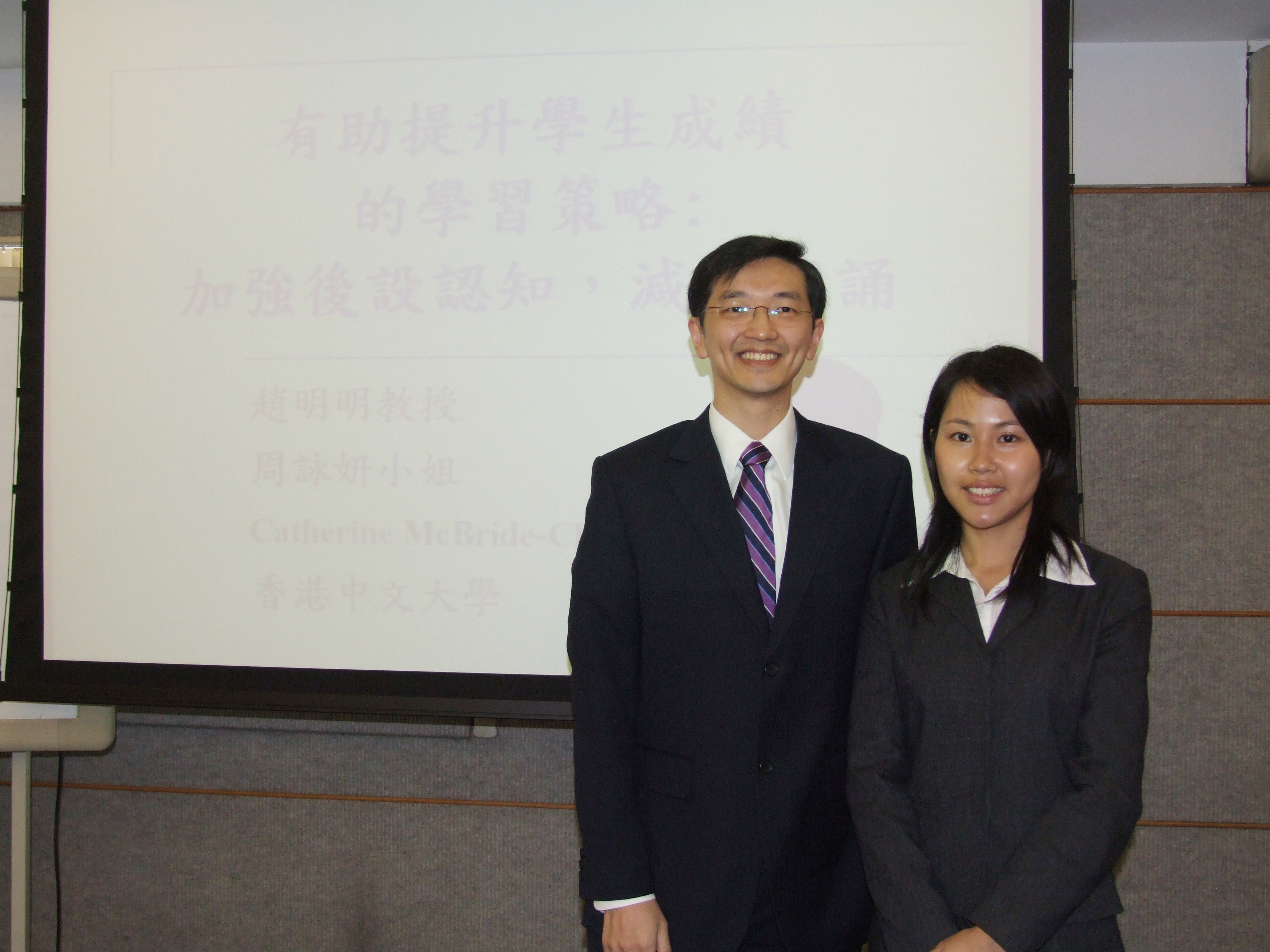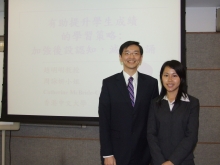News Centre
Study: Students learn more through more executive thinking and less memorizing
Do secondary school students learn more by memorizing new material? No, they learn less! Meanwhile, students who plan and evaluate their work (executive thinking) more often score higher than other students on math, reading, and science tests, according to a study to be published in the Learning and Individual Differences journal. Thus, parents and teachers should encourage students to
use more executive thinking and less rote memorization.
First international study of students' and schoolmates' learning strategies
At CUHK, Professor Ming Ming Chiu and Ms. Bonnie Chow from the Department of Educational Psychology and Professor Catherine McBride-Chang from the Department of Psychology conducted a large-scale international study of how the learning strategies of students and their schoolmates was linked with students’ own learning based on data from the OECD. The Organization for Economic Cooperation and Development's Program for International Student Assessment (OECD-PISA) collected the reading, science, and mathematics test scores and questionnaire responses of 158,848 fifteen-year-olds in 34 countries and regions, including Hong Kong.
Students' and schoolmates' executive thinking improve learning
As shown in the chart below, secondary students who reported a strong focus on memorization scored lower in mathematics, reading, and science. Meanwhile, students who said they used more executive thinking or whose schoolmates used more executive thinking scored higher in all three subjects.
|
A 10% rise in this self-reported strategy |
|
Results in this Change in Score % of… |
||
|
|
|
Math |
Reading |
Science |
|
Memorization |
|
-0.71 |
-0.79 |
-0.82 |
|
Executive thinking |
|
0.24 |
0.40 |
0.26 |
|
Schoolmates' executive thinking |
|
0.68 |
0.73 |
0.58 |
In this survey, Hong Kong students were ranked 16 th out of 34 countries in memorization strategy use and only 29 th in executive thinking strategy use, so there is substantial room for improvement in study strategies for Hong Kong students. As students use executive thinking to regulate both their own behavior and those of their schoolmates, executive thinking is doubly helpful. Executive thinking was more strongly linked to test scores in more individualistic societies (e.g., USA), but schoolmates’ reported use of executive thinking was more strongly linked to test scores in more collective societies (e.g., Hong Kong).
Recommendations for parents and teachers
‧Teach children and students to
1) Identify learning goals
2) Plan their work
3) Evaluate their own progress toward their learning goals
‧Avoid over-reliance on rote memorization
‧Teach students to relate the subject matter to themselves or to meaningful examples.

